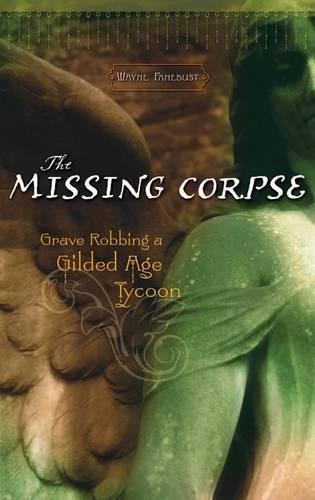
The Missing Corpse: Grave Robbing a Gilded Age Tycoon
(Hardback)
Publishing Details
The Missing Corpse: Grave Robbing a Gilded Age Tycoon
By (Author) Wayne Fanebust
Bloomsbury Publishing PLC
Praeger Publishers Inc
30th October 2005
United States
Classifications
General
Non Fiction
History of the Americas
364.162
Physical Properties
Hardback
288
Width 156mm, Height 235mm
595g
Description
The grave robbing of one of the country's wealthiest Gilded Age merchantsAlexander T. Stewart, the Merchant Prince of Manhattanset off a firestorm in the media, and one of the most celebrated police investigations in the city's history. Immortalized in Mark Twain's humorous story, The Stolen White Elephant, this crime captured the imagination of the American public. Against the backdrop of high society Manhattan, and Gilded Age decadence, this book chronicles the case of the missing body of the Merchant of Manhattan and reveals some of the more unseemly and unusual sides of nineteenth century urban life. Along with the likes of Carnegie, Rockefeller, Vanderbilt, and Morgan, Alexander T. Stewart made his fortune during the years when America industrialized. By the time of his death in 1876, Stewart, known as the Merchant Prince of Manhattan, had amassed a fortune estimated between $40 and $50 million. Snubbed by other Manhattan elites, he died lonely and miserable, his body interred in a vault at St. Mark's churchyard in Manhattan, awaiting relocation to the Long Island suburb he had dreamed of planning. But on the morning of November 7, 1878, the vault was discovered to have been emptied, the body gone. Few clues remained at the scene, and the public and press began speculating about the identity of the culprits. Grave robbing was not uncommon in the 19th century, as medical schools needed cadavers for their experiments but were often barred from using them; grave robbers seized the opportunity. Others speculated that a ransom was the motive, or that the stunt was meant as a political statement,a backlash against the wealthy. The newspapers fought fiercely for exclusive coverage and stories that could outdo their rivals. Suspects were arrested, but released when it was revealed that publicity had motivated their false confessions. And local clergy took the opportunity to equate the grave robbery with other sinful behavior, such as drinking and prostitution. Spiritualists and clairvoyants offered their services, but were quickly dismissed by the police and the press. The police continued to bungle the investigation, and ultimately the body was never recovered.
Reviews
Alexander Stewart was 'The Merchant Prince of Manhattan' in early New York whose name was famous for another reason after his death: the robbing of his grave set off one of the biggest investigations in the city's history and was recounted by Mark Twain and others. The Missing Corpse: Grave Robbing a Guilded Age Tycoon details the circumstances of the grave robbing, the many theories which abounded at the time, likely events, and its social impact. An excellent blend of true crime, early New York history and culture, and science makes The Missing Corpse a detailed, involving study. * Midwest Book Review - California Bookwatch *
Author Bio
Wayne Fanebust is an attorney and freelance writer based in South Dakota. His books include Echoes of November, The Life and Times of Senator R.F. Pettigrew of South Dakota and other titles on Dakota history, politics, and biography.
